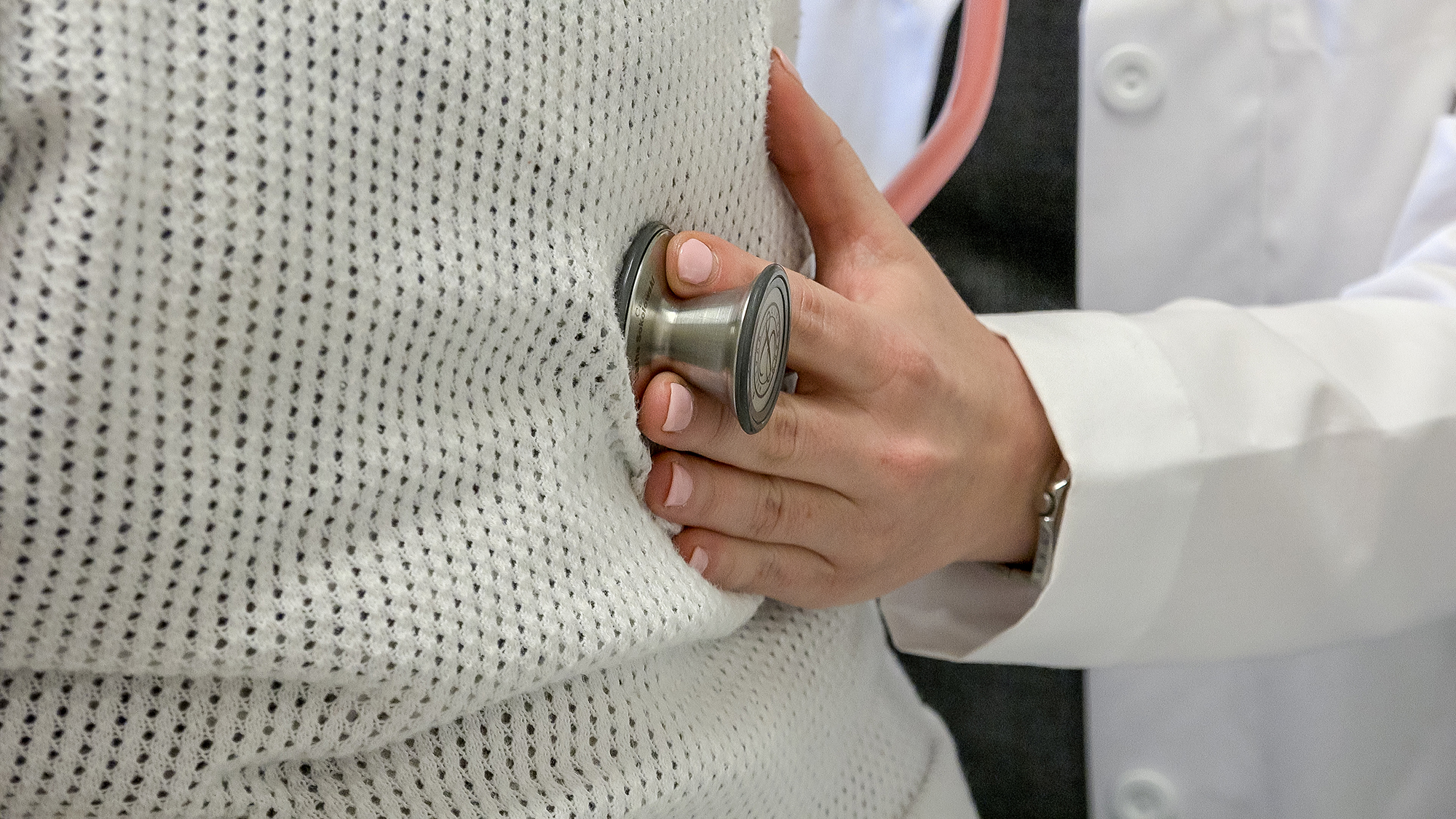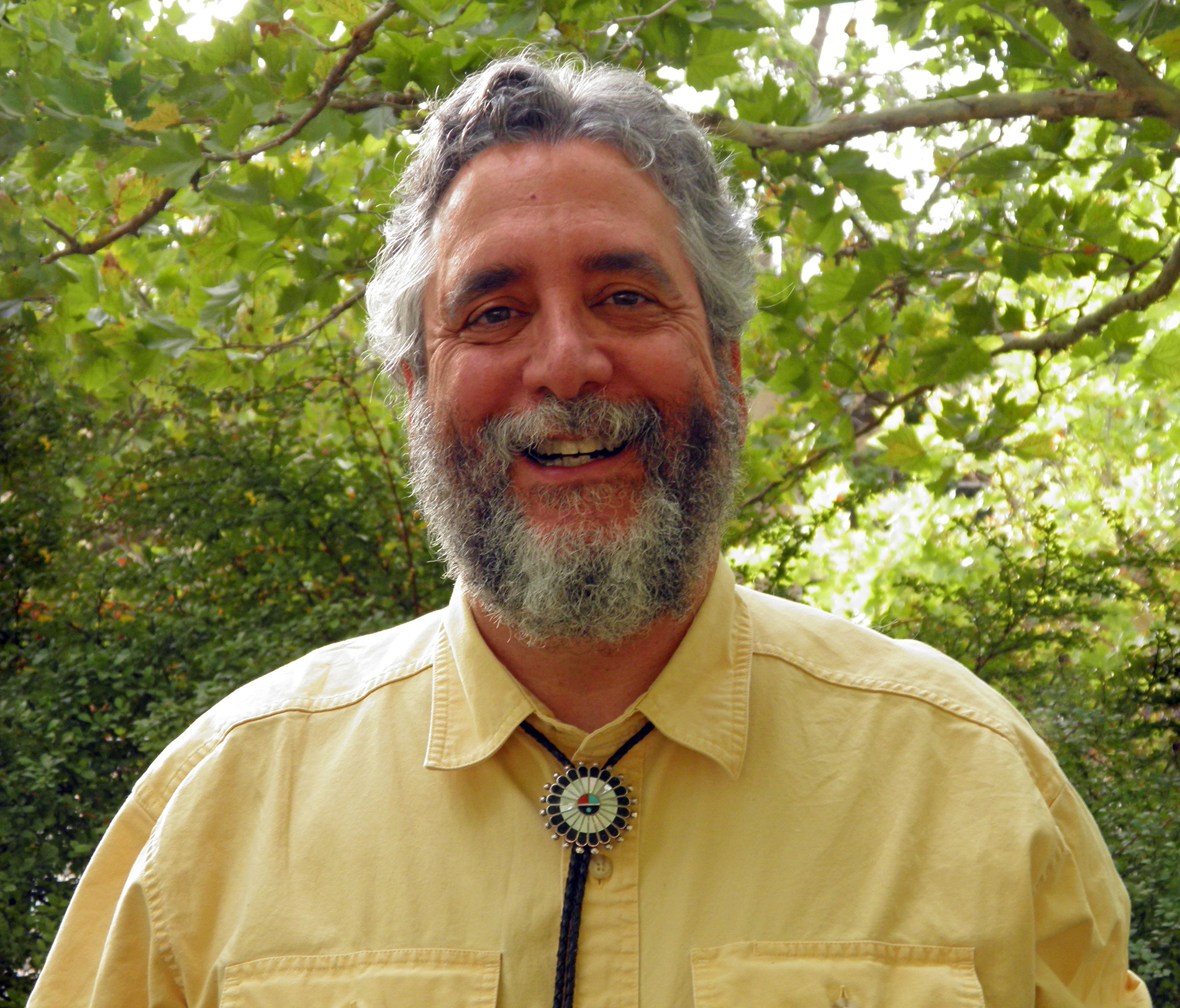Preparing for Disaster: UNM Hospital Participates in Region-Wide Emergency Training

Dose of Relief
UNM’s Milagro Program Offers Medication Assistance to Opioid-Dependent Expectant Mothers
At The University of New Mexico’s Milagro Program, which treats pregnant women experiencing substance abuse disorders, medical director Larry Leeman, MD, MPH, has spotted a troubling new trend.
In the past year fentanyl, a powerful synthetic opioid, has largely supplanted heroin and oxycodone as a readily available street drug, reducing the effectiveness of buprenorphine, an addiction treatment medication that is administered to nearly three-quarters of Milagro’s patient population.
“What we’re finding here is that it’s harder to get a woman onto buprenorphine from fentanyl,” Leeman says. Patients normally start on buprenorphine after first stopping their use of an illicit opioid drug, and it both eases their early withdrawal symptoms and reduces their desire to get high.
Fentanyl, which is 50 times more potent than heroin, complicates the equation, he says.
“The fentanyl stays in the body a long time,” says Leeman, a professor in the UNM Department of Family & Community Medicine, with a secondary appointment in Obstetrics & Gynecology. “Patients have to wait longer to start buprenorphine, and they experience more withdrawal symptoms. They wind up using (fentanyl) before they have all their buprenorphine onboard.”
Leeman and his colleagues recently started prescribing micro-doses of buprenorphine to their patients to see if it can blunt the withdrawal symptoms and help women adhere to their treatment plan.
Patients start on small doses of buprenorphine while they’re still using their illicit drugs, then gradually increase the dosage over seven to 10 days. “It has the potential advantages of not having the withdrawal,” Leeman says, adding that the new protocol appears to be well tolerated so far.
Some women in the Milagro Program are prescribed methadone, which is an effective addiction treatment, but it must be administered every day at a clinic, making it an impractical choice for people living in rural New Mexico, he says.

If you have women who are on meds for opioid use disorder, they’re more likely to follow up with prenatal care
UNM is also a clinical trial site for the MOMs (Medication Treatment for Opioid-Dependent Expecting Mothers) study, sponsored by the National Institute on Drug Abuse. The trial is comparing the usual daily oral dose of buprenorphine with an injectable extended-release form of the medication to see whether it might lead to better adherence to the regimen and lead to better maternal-fetal outcomes, Leeman says.
As a member of the American Society of Addiction Medicine, Leeman often confers with colleagues who treat pregnant patients. “Most of the people are leaders and researchers in the area,” he says. “We’ve been talking as a group about micro-dosing and sharing protocols.”
Opioid abuse affects most of the western U.S., Leeman says. “We’re really one of the epicenters of the opioid epidemic.” The Milagro Program, founded in 1989, treats between 160 and 180 expectant mothers with opioid use disorder each year, he says.
“If you have women who are on meds for opioid use disorder, they’re more likely to follow up with prenatal care,” Leeman says. “They’re less likely to have babies with growth restriction and preterm delivery, and their babies less are likely to have opioid withdrawal symptom.”
After delivery, many of the mothers and infants in the Milagro program transfer into the FOCUS Program, which provides services to families and children up through age 3. “It’s an innovative integration that we have here at UNM,” Leeman says.
Women find their way to the Milagro Program in a variety of ways. “We’re well known in the community,” he says. “People call – the family will call. Being pregnant is a big motivator for both the women and for their families to seek help.”